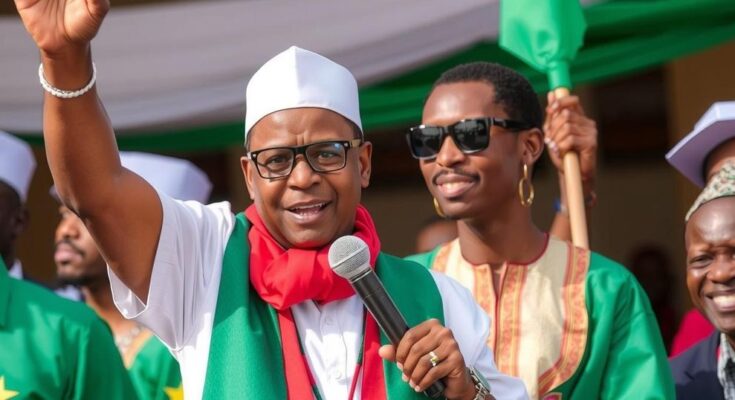Chad’s ruling Patriotic Salvation Movement won 124 out of 188 seats in the December parliamentary elections, conducted amidst a boycott by major opposition parties. This election is considered a pivotal step in President Mahamat Idriss Déby’s consolidation of power and decentralization efforts. Despite a voter turnout of 51.5%, opposition leaders have criticized the election’s legitimacy, fearing a repeat of previous disputed elections.
In the parliamentary elections held in December, Chad’s ruling Patriotic Salvation Movement (PSM) secured a decisive victory, winning 124 out of 188 seats as provisional results confirm. This election, which was the first parliamentary exercise in over a decade, coincided with a boycott from the leading opposition parties, reinforcing President Mahamat Idriss Déby’s control amidst an environment of political tension. Notably, voter turnout was recorded at 51.5%. President Déby has proclaimed that these elections will facilitate a long-awaited decentralization of power across provincial and municipal levels, a response to the populace’s demands for governance reform. However, the opposition has criticized the electoral process, dubbing it a mere facade and fearing it mirrors the previously disputed presidential elections, which observers deemed lacking in credibility.
Chad’s political landscape has been shaped by the recent transition of power following the death of long-standing leader Idriss Déby Itno, who dominated the country for three decades. His son, Mahamat Idriss Déby, assumed leadership in 2021 as a military ruler and held a controversial presidential election the previous year. The recent parliamentary elections were intended to mark the final step in Chad’s transition toward democracy, despite facing significant challenges, including security threats from militant groups and deteriorating military relations with France. The opposition, including major parties like the Transformers, has raised concerns over the legitimacy of these elections given their absence from the political process due to the boycott.
In summary, the parliamentary elections in Chad have resulted in a significant majority for the ruling Patriotic Salvation Movement amid an opposition boycott. This development not only solidifies President Mahamat Idriss Déby’s authority but also raises questions about the credibility of the electoral process and the future of governance in Chad. As the country grapples with security issues and political unrest, the ramifications of these elections will be closely monitored by both domestic and international observers.
Original Source: www.rfi.fr




